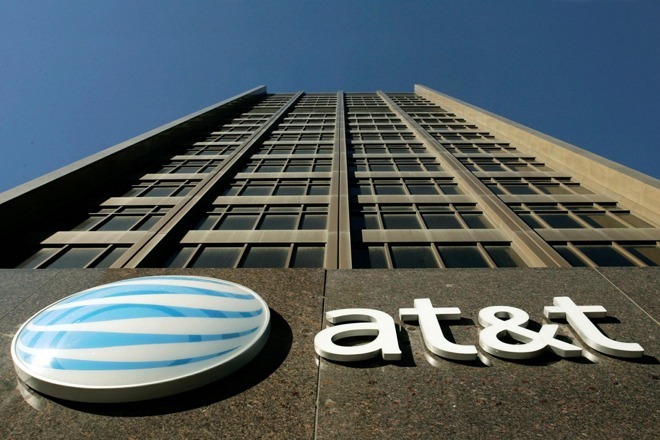After last year's DirecTV acquisition, telecommunications giant AT&T is looking to extend its reach into multimedia distribution, according to a report on Thursday that claims the company recently met with Time Warner to discuss a potential merger.
Citing sources familiar with the matter, Bloomberg reports talks of a merger surfaced when the two companies met in recent weeks over possible business strategies. The talks were characterized as early stage and informal, focusing more on building relations than specific takeover plans, the report said.
AT&T CEO Randall Stephenson is supposedly looking to expand his company's offerings far beyond existing telecom and pay-TV services, a strategy that rests heavily on a buildout of media and entertainment services. Original programming platforms owned by Time Warner could go a long way toward realizing Stephenson's plan, the report said.
On the block, if AT&T can raise the capital, is a valuable lineup from premium cable channels marketed by HBO, basic cable asset including Cartoon Network and lucrative sports licenses like NBA basketball. Access to popular content is vital for AT&T as the company prepares to launch an over-the-top streaming app under its DirecTV subsidiary.
Bloomberg claims Time Warner chief Jeff Bewkes is open to selling if a potential buyer puts in a fair offer, though the report fell short of naming exact terms. For reference, the media giant rebuked an offer of $85 per share put in by 21st Century Fox in 2014, which at the time valued Time Warner at more than $75 billion. AT&T is interested in acquiring media companies worth between $2 billion to $50 billion, a separate Bloomberg said earlier this month.
Aside from potential regulatory snags, an AT&T-Time Warner tie-up might be a long time coming, as AT&T is currently short on cash after its $48.5 billion purchase of DirecTV in 2015. AT&T promoted the acquisition earlier this year by offering unlimited data plans to smartphone customers who signed up for a DirecTV subscription.
 Mikey Campbell
Mikey Campbell








 Charles Martin
Charles Martin
 Christine McKee
Christine McKee
 Wesley Hilliard
Wesley Hilliard
 Malcolm Owen
Malcolm Owen
 Andrew Orr
Andrew Orr
 William Gallagher
William Gallagher
 Sponsored Content
Sponsored Content








4 Comments
Don't like it. Doesn't make sense to me. Can someone explain how this will benefit the consumer. Also a strange story about AT&T's plan of Direct TV service below: From http://www.bizjournals.com/denver/news/2016/09/27/report-directv-parent-at-t-to-phase-out-satellites.html DirecTV’s satellite signal facility southeast of Castle Rock sends broadcast TV network signals to satellites that beam the programming to U.S. users. AT&T Inc. – which is expected to premier its streaming service DirecTV Now later this year – reportedly will work to make streaming its primary TV platform by 2020. AT&T last year acquired satellite-TV service DirecTV, which has a large Colorado footprint. DirecTV’s satellite signal facility southeast of Castle Rock sends broadcast TV network signals to satellites that beam the programming to U.S. users. DirecTV’s satellite signal facility southeast of Castle Rock sends broadcast TV network… more Under the timeline, as reported by Bloomberg, DirecTV set-top boxes and satellite dishes could be obsolete in three to five years. Bloomberg cites people familiar with the plans. Dallas-based AT&T (NYSE: T) has claimed no allegiance to satellite TV technology from day one of its $48.5 billion acquisition of DirecTV, but it hasn’t publicly provided any definitive answers or a timeline on a migration of its 25 million video subscribers toward the software-centric future of TV. The company has, however, said it has much to gain from a move toward streaming as it integrates its mobile and broadband businesses with its entertainment wing. Earlier this week, CEO Randall Stephenson revealed one way it will leverage that position. AT&T mobile subscribers will be able to use unlimited data on DirecTV Now without it counting against their monthly usage caps. “To the extent that it’s driving further penetration in wireless or driving churn down in wireless, the lifetime value of a customer with this kind of product is actually quite attractive,” Stephenson said of DirecTV Now. AT&T’s video business is a major Denver metro-area employer, and it’s not clear how a shift to all streaming would affect that. About 1,700 people work in DirecTV business operations, mostly at offices in Centennial. A couple hundred of them work at a DirecTV satellite station south east of Castle Rock managing satellite transmissions and feathering in local broadcast content from around the country into subscribers' satellite and streaming services in 197 domestic TV markets. The technology world is awaiting the arrival of 5G wireless, which is expected to provide the bandwidths needed to more seamlessly power high definition and 4K video, among other products. AT&T currently has about 20.5 million DirecTV connections and about 4.8 million U-Verse connections, and the gap between the two numbers is growing. The company recently scaled back its U-Verse branding, removing the name from its internet and phone products